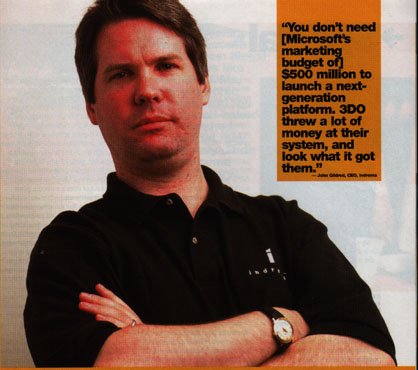The Top 7... Consoles that never were
Gizmondo 2? Super Nintendo CD? Find out why they vanished before their time

Created by:Indrema
Intended for release: 2001
The hope: Conceived as the world's first open-source console, the L600 was a Linux-based, independently produced game system that would enable anyone with a little programming knowledge to become a game developer, ideally opening the door to cheap, high-quality games. It was also upgradeable, enabling owners to keep up with ever-changing hardware cycles relatively cheaply, and doubled as a DVD player, digital video recorder and MP3 player, all of which were pretty damned impressive for 2001.
The reality: Probably Indrema's biggest moment in the sun was an eight-page spread in the April 2001 issue of Next Gen magazine, in which readers were treated to news about the L600's "exciting" launch lineup (which largely consisted of then-old PC tech-demo games like Nanosaur, Tux Racer and Shogo: Mobile Armor Division), as well as this horrible, horrible photo of Indrema CEO and apparent eczema sufferer John Gildred:

It was also painfully clear from reading the article that Indrema was much more interested in marketing the L600 to hobbyist programmers than to actual console gamers (although it just as clearly expected console gamers to buy it anyway). This was about giving power to the little guy, and if that resulted in a flood of shovelware that nobody wanted to play, then so be it. At the same time, though, the company seemed to think it could compete directly with the PS2 and Xbox, simply because it was easier to develop for. Because, you know, that's what the average gamer cares about.
Also, never mind that PCs were already doing all that stuff. This was about principle, dammit.

Above: Indrema'sidea of a killer launch title
Weekly digests, tales from the communities you love, and more
Why it never saw life:Indrema never even had a chance to properly misunderstand its customers - ironically, the company went belly-up almost immediately after that Next Gen article was published. After a year of failing to deliver any product, finished or otherwise, Indrema learned the hard way that creating a game console is a money-sucking business, and when it closed its doors it was reportedly $10 million in the hole.



